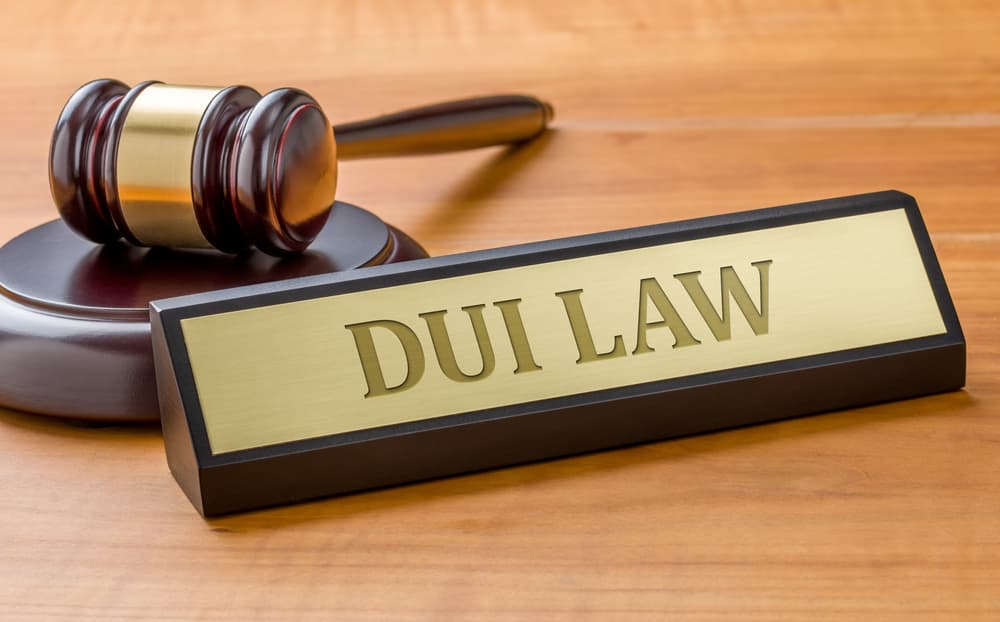Being charged with a first-time DUI can be extremely upsetting. Below is some general information about DUI charges, defenses, and how you’ll benefit from legal representation. However, your first step should always be to contact a DWI defense attorney.
Schedule Your Free Consultation
What is a DUI?

A DUI is when law enforcement believes you are driving while impaired by alcohol or other substances. For alcohol-related cases, this means having a blood alcohol concentration (BAC) of 0.08 percent or higher. But you can be charged with a DUI with a lower BAC if law enforcement believes your ability to drive is impaired.
A first-time DUI conviction can have significant consequences. These consequences include fines from a few hundred to a few thousand dollars, jail time, license suspension or revocation, mandatory alcohol education classes, and higher insurance rates. A DUI conviction can also affect future job opportunities and travel plans.
Talk to a DUI Lawyer
With a DUI lawyer’s help, you can face the consequences with less stress. Your attorney will make it possible for you to experience better results and move forward with more confidence.
Initial Traffic Stop and Your Rights
Law enforcement must reasonably suspect your behavior to pull you over. This can be a traffic violation, reckless driving, or an equipment infraction. Without valid reasonable suspicion, the stop can be challenged as unconstitutional and potentially getting evidence suppressed.
During the stop, you have certain constitutional rights:
- The right to remain silent
- The right to refuse field sobriety tests
- The right to refuse portable breath tests
- The right to call an attorney
- The right to refuse vehicle searches without a warrant
You have these rights, but exercising them may have consequences. For example, refusing a chemical test after arrest will suspend your license under implied consent.
Common Defenses
First-time DUI Charges:
Challenging the Stop
The validity of the initial stop is significant. If law enforcement didn’t have reasonable suspicion to pull you over, evidence obtained during the stop may be suppressed. Your defense team can review dashcam footage, police reports, and witness statements to challenge the stop.
Questioning Field Sobriety Tests
Field sobriety tests are highly subjective and can be influenced by many things that have nothing to do with impairment. These can be:
- Physical conditions or injuries
- Weather conditions
- Uneven testing surfaces
- Proper testing procedures
- Fatigue or nervousness
- Medical conditions
Your defense can challenge the administration and interpretation of these tests.
Challenging Chemical Test Results
Blood alcohol testing isn’t foolproof. Potential challenges are:
- Calibration and maintenance records of testing equipment
- Chain of custody for blood samples
- Proper observation periods before breath tests
- Testing procedure compliance
- Rising blood alcohol levels between driving and testing
- Medical conditions that affect test results
Alternative Resolutions
First-time offenders often have options besides fighting the charges in court:
Plea Agreements
Prosecutors may offer reduced charges or penalties for first-time offenders. Common alternatives are:
- Wet reckless charges (these lesser charges are not available in all states, including North Carolina)
- Deferred prosecution agreements
- Conditional discharge programs
These agreements require certain conditions but can get you out of a DUI conviction.
Diversion Programs
Many jurisdictions have diversion programs for first-time offenders. These programs are:
- Alcohol education classes
- Substance abuse evaluation and treatment
- Community service
- Court appearances
- Random drug and alcohol testing
Complete the diversion program and get your charges dismissed.
How a DUI Lawyer Can Help You

By working with a DUI lawyer, you can stay one step ahead in a chaotic situation. Your lawyer will investigate every aspect of your case and know what forms and evidence to collect to strengthen their arguments. Without a lawyer’s direction, you can get caught up in the legal process, unsure which way to go.
That’s why an attorney’s direction and support are helpful. If you want a better outcome, preserving the evidence and moving through the legal process immediately is essential. An attorney will provide a type of checklist so you’ll know and understand each phase and can proceed with more confidence.
Your DUI lawyer can look at each factor of the case, consult with experts, and find out if any technicalities exist that may be used to support your defense. For instance, they’ll review how the police handled the stop and if the testing equipment was in working order. No stone will be left unturned during their review.
They’ll look for mitigating circumstances and keep you informed of their progress. If you have any questions, they can explain the situation more clearly.
What to Do After a DUI Charge
Do these after being charged:
Document Everything
Write down everything you can remember about:
- Events leading up to the stop
- Officer interactions
- Field sobriety tests
- Chemical testing procedures
- Witness information
Gather Evidence
Get:
- Medical records showing conditions that affected sobriety tests
- Receipts for food and drinks
- Witness statements
- Surveillance footage from places you visited
- Weather reports from the day of the incident
Seek Professional Help
Consider speaking to a:
- DUI defense attorney
- Substance abuse counselor (if recommended)
Address Administrative Issues
Handle immediate practical matters. Your attorney can help you check off each step.
- Respond to suspension notices
- Arrange for transportation
- Contact your insurance company
- Get hearing transcripts
- Get police reports
Review the Long-term Consequences
Consider the bigger picture:
- Current employment policies on DUI charges
- Professional licenses
- Future job application questions
- Commercial driving privileges
Know What You’ll Need in Insurance
Understand:
- Premium increases
- SR-22 requirements
- Coverage changes
- Alternative insurance options
Examine Your Future Legal Rights
Consider how a conviction will affect:
- Future DUI charges
- Professional licensing
- International travel
- Housing applications
Moving Forward
A first-time DUI doesn’t have to define your future. Knowing your rights, defenses, and options can get you through this experience. Working with experts and taking proactive measures can minimize the impact on your life and help you learn for the future.
Contact a DUI Attorney
Understand your rights and know how to proceed with a defense. By speaking to a DUI lawyer, you can move forward more positively. Schedule an appointment with a Beaufort criminal defense lawyer today.